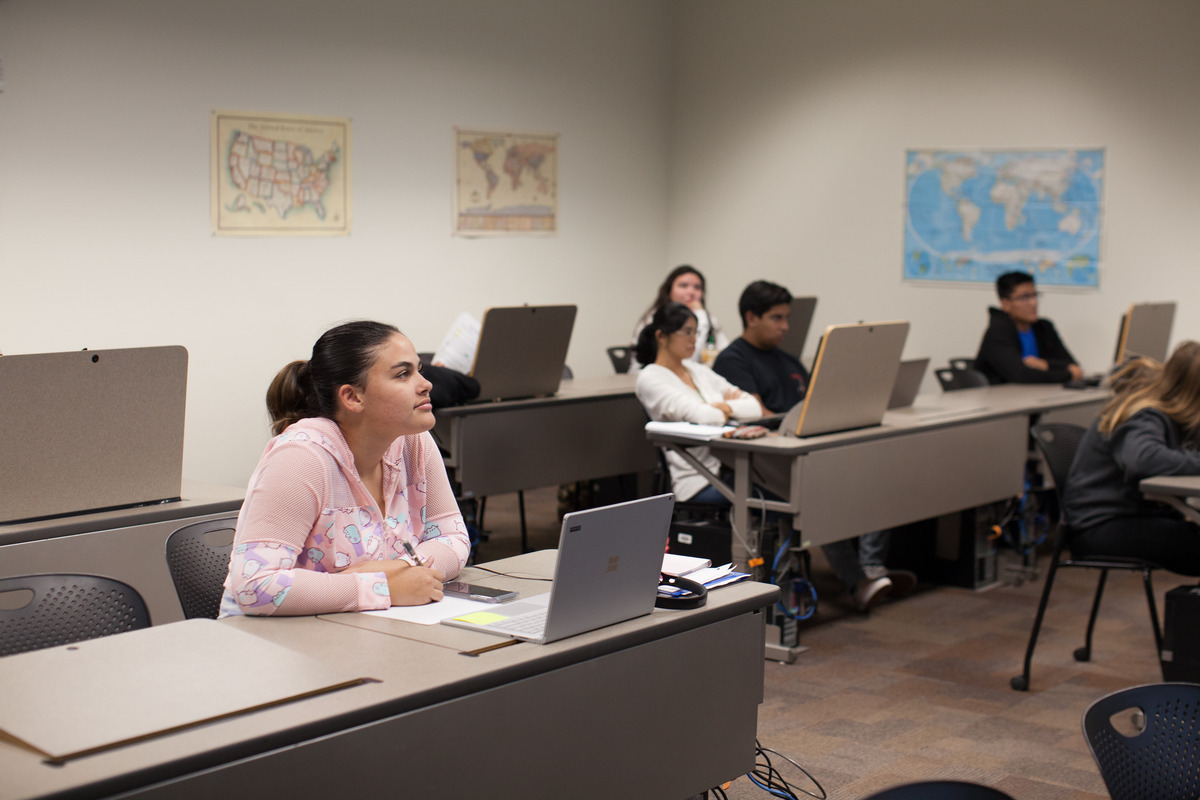Instruction

Curriculum
A Cochise College education creates opportunities for students to build the foundation
of knowledge and skills necessary for lifelong success. We strive to help them enrich
their quality of life by encouraging habits of mind that enable them to understand
and value the world they live in and to contribute to its well-being.
To ensure that curriculum conforms with current standards, academic departments are
responsible for conducting periodic reviews of their curriculum outlines and for updating
them as needed. The curriculum coordinator and curriculum committee co-chairs will
annually provide academic deans and their respective chairs with a list of courses
and programs needing review. These courses and programs will be updated to current
standards, with emphasis on descriptions, outcomes, and assessments.
Learning Improvement
The Learning Improvement Committee oversees planning and implementation of Student and Institutional Learning Outcomes Assessment. Thus, our assessment efforts help ensure that we fulfill our mission of providing accessible educational opportunities that are responsive to a diverse population and lead to constructive citizenship, meaningful careers and lifelong learning.
These student learning outcomes statements clearly state the expected knowledge, skills, attitudes, competencies, and habits of mind that students are expected to acquire at Cochise College upon completion of a degree.
Communication – Students, using writing and other language skills both individually and collaboratively, will discover, organize, and communicate information, ideas, and arguments in a clear and effective manner appropriate to the audience and purpose.
Creativity – Students will analyze, evaluate, and reflect on aesthetic experiences; seek innovative solutions to technical, scientific, social, or individual problems; and produce artifacts of self-expression.
Critical Thinking – Students will employ logical, analytical, analogical, and reflective reasoning as well as scientific, mathematical, and artistic inquiry to solve problems effectively.
Diverse and Global Perspectives – Students will discover and understand the diversity of human experience and the interdependent roles of cultural, historical, economic, social, physical, and ecological forces in shaping this experience.
Information Literacy – Students will illustrate proficiency in information literacy by recognizing when information is needed and using both traditional sources and modern technologies to locate, evaluate, and effectively apply the needed information.
Technology Literacy – Students will apply technological skills and processes to access, manage, analyze, and understand information, and to present knowledge effectively.
Learning Improvement at Cochise College
Cochise College is committed to continuous improvement of its students’ learning. The learning improvement process at Cochise College provides evidence of how well the college is meeting its objectives, helps identify areas of improvement, and allows improvements to be implemented. This is achieved by investigating current levels of learning, experimenting with ways to improve learning, and using the experimentation results to integrate successful strategies and actions for improving student learning into the college’s curriculum or procedures.
Learning Improvement Committee Mission Statement
The Learning Improvement Committee promotes a culture of continuous improvement at Cochise College by facilitating learning improvement processes at the departmental, program, and institutional levels. The Learning Improvement Committee works to ensure that these processes involve self-reflection, identification of strategies for improvement of learning, and implementation of those strategies. The committee also works to connect these processes to strategic planning and institutional effectiveness.
CLIP is the next phase in the evolution of Cochise College’s efforts to improve student learning. This project builds upon the DIAL process used for several years at the College to engage faculty and student service staff in the assessment of general education outcomes.
The CLIP system allows faculty and staff to file assessment documents online. This web-based system also allows faculty and staff to receive feedback online. These advantages, along with the automated features of the system, should help make the reporting and approval process more convenient and efficient.
The CLIP process extends the cycle beyond the current DIAL process in an effort to better help programs and disciplines “close the loop” and ensure improvement in student learning. CLIP does this by engaging faculty and staff in a three-stage project:
Stage One is called Investigation and is similar to the DIAL process. The process begins with faculty and staff designing assessment plans centered on student learning outcomes, initiating the plans, and analyzing the results of the procedures followed in the plans.
Stage Two is called Experimentation. This stage begins where the current DIAL process leaves off—with an action plan to improve student learning. It is an experimental stage, for the goal is to determine whether the planned actions will achieve their intended effect. Nonetheless, the process is similar to that conducted in Stage One: staff and faculty design plans to measure, this time, the effectiveness of action plans to improve student learning, implement these plans, and analyze the results. If implementation of the action plan proves less than successful, then Stage Two begins anew, with the design of a new plan to improve student learning. If the results indicate that the actions taken to improve student learning were successful, then Stage Three commences.
Stage Three is called Integration. This stage begins if and when the actions taken to improve student learning prove successful at the end of Stage Two. The goal is to integrate successful strategies and actions for improving student learning permanently into the program’s curriculum or operation. Faculty and staff devise an integration plan for doing so and confirm that the integration has been completed.
Your time and experiences at Cochise College should be viewed as a picture of educational accomplishment. Here at Cochise College we identify this picture as student learning outcomes for the Associate Degree Experience. By reviewing the program outcomes you can see the whole picture and identify the knowledge and skills you will be able to use upon finishing. Ask yourself the following questions and then view the rubric of competency categories for each outcome (PDF).
Communication
Do I communicate effectively?
Creativity
Is my work an artifact of self-expression?
Critical Thinking
Do I employ logic and self-reflection to solve problems?
Diverse and Global Perspectives
Do I understand the diversity of human experience?
Information Literacy
Am I able to find, evaluate and use information effectively and ethically?
Technology Literacy
Do I use technology effectively?
Institutional Research
The Office of Institutional Effectiveness is responsible for providing data, information
and analysis for all areas of the college in support of planning, decision-making
and reporting. We are the place for official data and information about Cochise College.
Institutional Research Webpage
Contact Information
|
Interim Vice President for Academics |
Executive Administrative Assistant |
Curriculum Contact Information |





